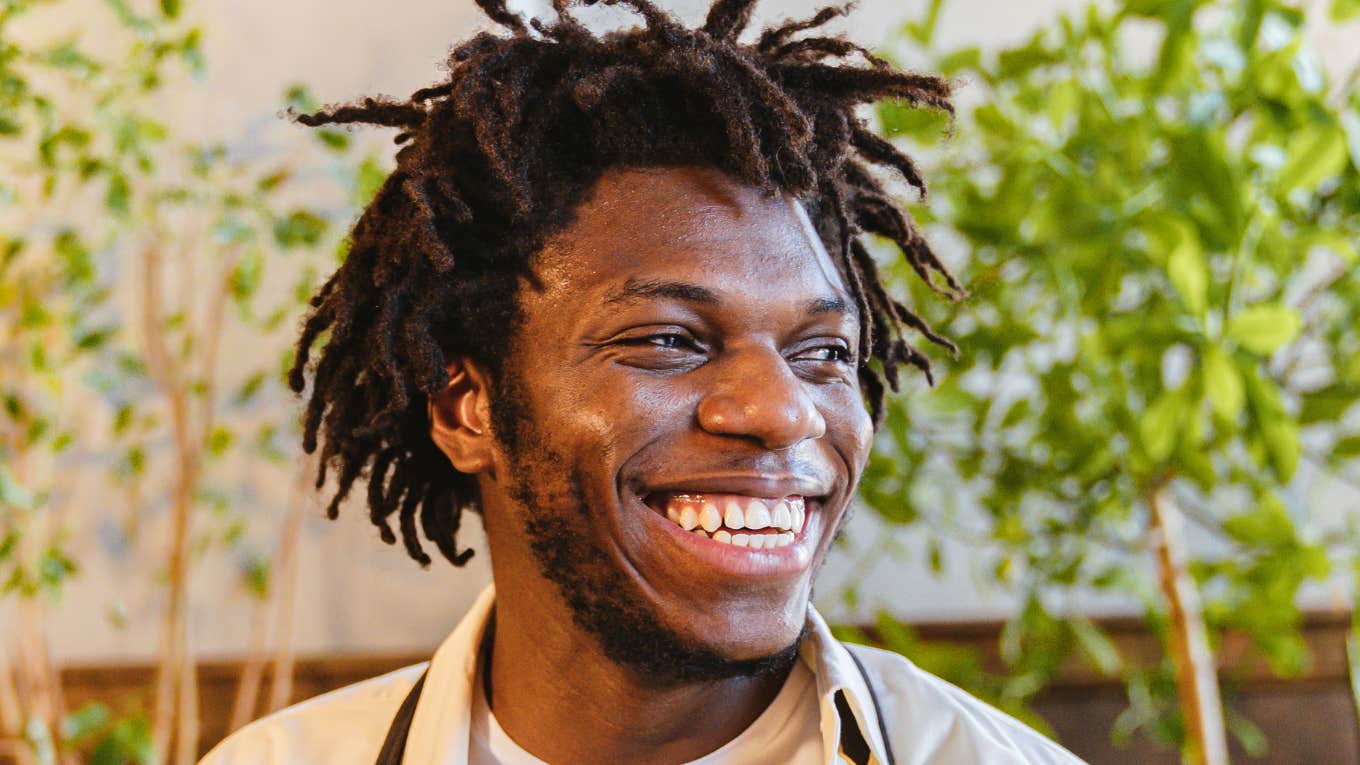9 Hidden Indicators Your Relationship Is Really Healthy, According To Psychology
Psychology tells us what makes healthy relationships stay healthy.
 Antoni Shkraba | Canva
Antoni Shkraba | Canva Some people say that everything comes easy when you’re in a healthy relationship. Others will say that’s not true — the best long-term relationships require hard work, dedication, and determination. While we can certainly agree that no one relationship is perfect and that every relationship comes with unique challenges, it’s perhaps true that a healthy relationship combines all these things with people who love, respect, and support each other.
Some endless traits and behaviors are emblematic of a healthy, fulfilling relationship. Most of us know what they are (even if we forget to practice them!), such as listening to one another, laughing together, using humor (especially during arguments), having regular intimacy, going on dates, etc.
Here are nine hidden indicators your relationship is healthy:
1. You look out for each other
 Ground Picture / Shutterstock
Ground Picture / Shutterstock
When both parties look out for one another, the results are profound, primarily because it creates a basis of trust that is the relationship's bedrock. When you know someone has your back, it gives you tremendous security and frees you from chronic thoughts of doubt and uncertainty that can otherwise plague relationships.
This strong sense of trust and dedication to your partner's well-being is the greatest gift we can give to our partners.
2. You take the high road
 simona pilolla 2 / Shutterstock
simona pilolla 2 / Shutterstock
Let's face it. Sometimes you want to get back at your partner because he or she has hurt you. Even in the best relationships, hurt and disappointment are inevitable.
The magic is in how couples manage such things. Relationships, where each individual has the maturity and ability to take the long-term view and strive to treat the other well, are much better off than those where partners act on each emotional impulse or every perceived infraction.
Taking the high road takes great strength and thoughtfulness. It often feels more rewarding at the moment to give in to melancholy, vindictiveness, anger, or a host of other negative expressions. Taking the high road means actively putting your best foot forward — even when you would rather pout or wallow or exact revenge (even in small petty ways).
Responding to conflict with calmness, empathy, and constructive communication rather than aggression or retaliation is generally associated with improved relationship quality, increased satisfaction, and a stronger sense of personal well-being.
A 2011 study found this is often linked to concepts like emotional regulation, active listening, and prioritizing positive interactions within a partnership. Practicing mindfulness helps one become aware of one's emotions and develop strategies to manage them effectively.
3. You understand some conflict is normal and expected
 MAYA LAB / Shutterstock
MAYA LAB / Shutterstock
Contrary to what some may think, a healthy relationship doesn't mean you're happy 100 percent of the time. You will argue from time to time — occasional conflict is healthy. It's the natural by-product of two different human beings living in close relationships with one another.
Instead of just avoiding arguments, healthy couples know how to handle them when they inevitably do come up.
Research shows that this knowledge has everything to do with how long-lasting your relationship will be. Damaging patterns such as one partner "pursuing" while the other is "distancing" have been shown to have a negative impact on the future of the relationship, as evidenced in a 1994 study of long-term marriages.
4. You know how to pick your battles
 Srdjan Randjelovic / Shutterstock
Srdjan Randjelovic / Shutterstock
Just because conflict is normal doesn't mean you have to go out of your way to have it. Before you say anything, decide if the possible negative effect of a comment is worth saying it in the first place.
A good rule of thumb: you've tried, but you just can't let it go. This can be a sign that an unresolved issue has the potential to turn into lasting resentment and should be openly discussed.
Maintaining healthy communication and minimizing unnecessary conflict involves strategically choosing which issues to address and which to let go of, prioritizing matters that significantly impact the relationship, and avoiding arguments over trivial issues. A 2022 study showed that constantly arguing about minor matters can erode trust and intimacy within a partnership while focusing on essential concerns allows for more productive conflict resolution.
5. You talk so the other is able to listen
 Perfect Wave / Shutterstock
Perfect Wave / Shutterstock
So how do you talk about the tough stuff? Healthy resolution of conflict involves honest and respectful communication, a willingness to look at your own contribution, and the ability to know if you need to take a time-out and come back to it later. If anger comes up, you may need time (20-30 minutes is usually good) to cool down so you don't say something in the heat of the moment that you might later regret.
6. You feel free from retaliation or judgment
 Drazen Zigic / Shutterstock
Drazen Zigic / Shutterstock
Healthy relationships provide a feel-good atmosphere of support, encouragement, teamwork, and love. This support and encouragement lead to a higher level of comfort whereby you are able to clearly express yourself without fear of retaliation or judgment.
Feeling free from judgment in a relationship is strongly linked to higher satisfaction, intimacy, and trust. It allows partners to feel comfortable expressing themselves authentically without fear of criticism or devaluation.
A 2007 study focused on "unconditional positive regard," where partners accept each other fully, flaws and all, minimizing judgment and fostering a secure emotional connection. The Gottman Institute extensively studies healthy relationships and emphasizes the importance of "acceptance" and "validation" as key components of a supportive partnership, highlighting the negative impact of judgment.
7. You feel like yourself — your best self
 AYO Production / Shutterstock
AYO Production / Shutterstock
Healthy relationships align with your core beliefs, convictions, and overall chosen style of life. In a healthy relationship, you never have to worry about changing yourself to make the relationship function.
You also never have to worry about losing your partner when you decide to make some changes. There's no need to be someone else, do something that makes you feel uncomfortable, or act in a certain way. You often hear yourself saying or thinking, "This relationship brings out the best in me."
8. Your quality of life is higher because you're together
 ORION PRODUCTION / Shutterstock
ORION PRODUCTION / Shutterstock
Healthy relationships improve your quality of life. Are you growing? Are you wiser? Are you more mature? Have you modified your behaviors more positively? Has your attitude and overall outlook on your life and goals improved? If you are saying yes to these questions, you are in a healthy relationship.
Being in a high-quality romantic relationship is strongly associated with a higher quality of life, including increased life satisfaction, better mental health, and reduced stress levels compared to being single. This is attributed to a supportive partner's social support, intimacy, and sense of belonging.
A 2021 study cautioned against interpreting the link between relationship status and well-being solely as a causal relationship, as individuals with better mental health may be more likely to enter and maintain relationships.
9. You don't have to be attached at the hip
 fizkes / Shutterstock
fizkes / Shutterstock
Trusting habits are demonstrated in healthy relationships. That means you are not going through her phone, checking his email, or having to be by his side everywhere he goes in order to keep an eye on what he's doing. Instead, you are able to freely allow him/her to do whatever he/she wants to do.
In return, your time is spent doing what you want to do. And if/when those two wants cross (i.e. you want to spend time with him and he wants to spend time with you)—you'll be together...and that's the bonus. You often hear yourself thinking or saying, "I trust your decision-making."
Laurel Fay is the owner of Laurel Fay & Associates and is a marriage and family therapist who specializes in couples' work.

